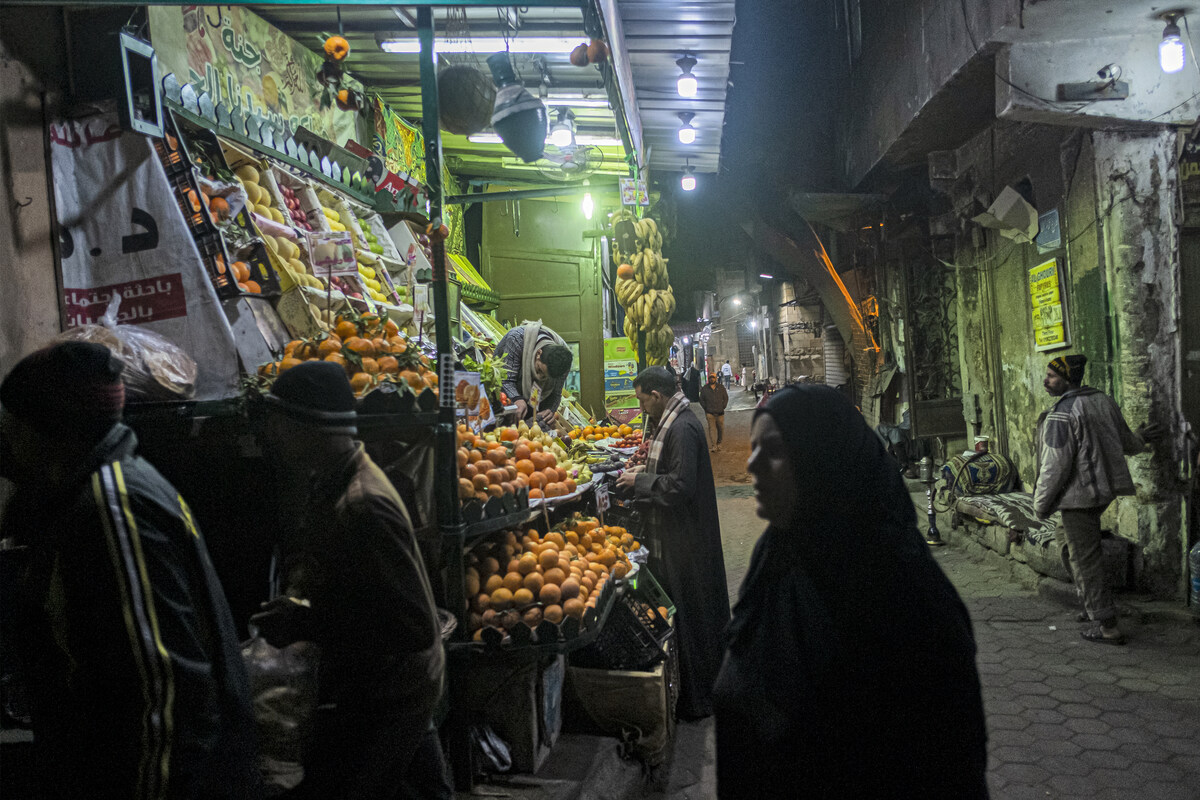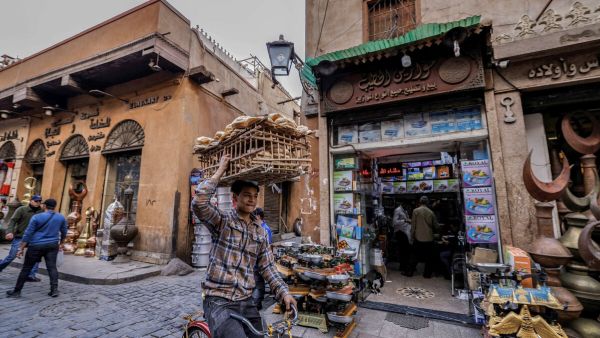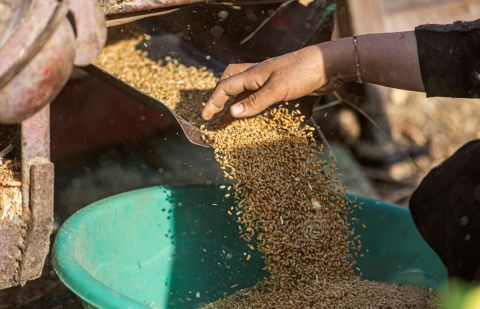ALBAWABA – Inflation in Egypt rose to a new high in August, figures released Sunday by the Central Agency for Mobilization and Statistics (CAMPAS) showed.
Annual inflation in Egypt hit 39.7 percent in August, up from a record of 38.2 percent in July, as the cash-strapped country struggles with a devaluating currency.
Food and drink prices increased 71.9 percent, compared to August 2022, according to CAMPAS, as reported by Agence France-Presse (AFP).
On a monthly basis, data indicate a decline, as inflation in Egypt stood at 1.6 percent in August, compared with 1.9 percent in July, according to Bloomberg.
However, inflation in Egypt more than doubled in August compared to the same month last year, when it recorded 15.3 percent, Associated Press (AP) reported.
As reported by AP, this surge in inflation in Egypt is compounded by economic pressures, shortage of foreign currency in reserve and successive devaluation of the local currency.

People walk past a fruit seller's stall in the Azhar district in Cairo on January 16, 2023. (Photo by Khaled DESOUKI / AFP)
The Egyptian Pound lost half of its value against the United States (US) dollar in 2023, as investors pulled billions out of Cairo's foreign reserves, which remain buoyed by deposits from wealthy GCC allies.
Gulf Cooperation Council (GCC) countries have promised to purchase Egyptian state assets, but so far their promises have fallen short of government targets, according to AFP.
Goldman Sachs Group Inc. expects inflation to stay above 30% this year and then go into “a sharp decline through 2024,” Bloomberg reported.
“The main risk to our projections remains the possibility of further FX weakness,” Goldman economist Farouk Soussa said in an August report.
“We do not expect any depreciation of the pound in the official market” but “FX pass-through from the parallel rate remains a risk factor.”
Even before this crisis, nearly a third of Egyptians, some 30 percent, were living below the poverty line, according to the World Bank, with another 30 percent vulnerable to falling into poverty.
Egypt, the Arab world's most populous country, has been dependent on bailouts in recent years, from both Gulf allies and the International Monetary Fund. Last year, the IMF approved a $3 billion loan for Egypt, conditioned on "a permanent shift to a flexible exchange rate regime".









